2015 Chevrolet Trax Vs. 2015 Nissan Juke

It’s starting to sound repetitive, but subcompact crossovers are hot right now.
Not wanting to be left out, Fiat, Honda, Jeep and Mazda are all about to join the party that currently consists of just a few models. But one manufacturer got a jump on them: Chevrolet. Introduced earlier this year the Trax slots in at the low-end of the Chevy crossover hierarchy. For now there isn’t much in the way of competition for the Trax, save for a few aging competitors.
One of those is the Nissan Juke. Introduced in 2010, the Juke has found decent success in North America and is partially responsible for the subcompact crossover explosion. It was an easy choice then to put the Juke up against the Trax to see how well Chevy’s high-riding little hatchback is.
Juke vs. Trax
Starting on the outside, the exteriors couldn’t be farther apart. The Juke is a wild and crazy design that isn’t for everyone, but at least it has some “style.” The Trax, in sharp contrast, is a metallic mound of mediocrity.
SEE ALSO: Five-Point Inspection – 2015 Nissan Juke
Furthering the Juke’s ostentatious appearance for our comparison is $1,725 worth of purple-painted trim pieces that contrast the Nissan’s white exterior. That brings the total as-tested price of Juke SL AWD to $29,885 after destination charges compared to $28,305 for the Trax LTZ AWD with the sunroof package. Take away the unnecessary purple pieces and the pricing is almost identical.
What’s Included?
For that price both vehicles come with the usual array of higher-end options like power everything, a sunroof and satellite radio. The Juke trumps the Trax with automatic climate control, built-in navigation, a proximity key, 360 degree cameras, real leather seats and the somewhat gimmicky secondary screen for climate control and drive modes. The Trax counters with automatic headlights, a power driver’s seat, telescopic steering wheel, 4G LTE WiFi and a remote starter. Which group of options is better really comes down to personal preference.
They both sit on the low end of the interior quality spectrum. The Juke is a pit of black plastic and couldn’t be more conservative. In contrast, the Trax suffers from the GM epidemic of having too much going on inside. There’s an overabundance of materials, colors and textures, none all that great. Making matters worse, Chevrolet uses cheap interior components. The seat heaters are one stage and navigation has to be run through the BringGo app that eats up cellular data to operate.
Space vs. Comfort
Sightlines for both vehicles are good and outside noise and vibrations are kept to acceptable levels. The Juke offers a more comfortable driving position as the Trax’s seatback is too stiff and feels like a wooden board. Up front, the Trax is full of storage nooks in every conceivable unused space, but problem is the majority of them are useless for more than a cellphone or a pair of gloves.
Rear seat comfort is a mixed bag. The rear seat bench in the Trax is set very high and shorter people could have issues climbing onto it. Once in there though, comfort for rear passengers is better in the Trax. Legroom is adequate in both crossovers, but six-foot tall passengers just fit in the Trax thanks to a headliner cut-out while their heads will be bumping the roof in the Juke. Winning bonus points for the Trax is a fold-down center arm rest.
When it comes to cargo space, the Trax is the clear winner with 18.7 cubic feet of cargo room. The Juke only offers 10.5 cubic feet that’s best suited for a briefcase and a bag of marshmallows. But if cargo room is the main focus for you in this segment, we’d suggest buying a less-optioned, larger compact crossover like an Equinox for the same money. Don’t get us wrong, space is an important consideration in a subcompact crossover, but it’s not the only one
Power vs. a Lack Thereof
It isn’t until the two vehicles are driven back to back that a winner begins to emerge. When I drove the 2015 Chevrolet Trax earlier this year, I declared it could be the best subcompact crossover currently on the market. Turns out I was wrong.
With good initial low-end torque, the Trax falls flat on its face once the engine speed begins to build and things only get worse at freeway speeds. We like the 138 HP 1.4-liter turbocharged four-cylinder engine in the Cruze and Sonic, but in the Trax it’s out of its depth. Chevrolet needs to squeeze another 25 to 30 HP out of this engine to better match the Trax LTZ AWD’s 3,340-lb. curb weight. Or, maybe Chevrolet should scrap it altogether and wander over to Buick and see if the company can borrow the Cascada’s 1.6-liter turbo unit.
SEE ALSO: 2013 Chevrolet Trax Review
The Juke uses a 1.6-liter turbo with a much healthier 188 HP; a big step up compared to the anemic Trax. These crossover’s transmissions further exaggerate the power disparity. The Juke utilizes a continuously variable transmission (CVT) that does a good job with smooth transitions between rpm points. It’s constantly adjusting engine speeds in quick, sudden increments that mimic those of an automatic transmission.
The Trax comes equipped with a six-speed automatic which is a decent unit, with a few nuances. One-two shifts are very quick, but the rest of the upshifts or downshifts feel slow. The six-speed is constantly trying to upshift at low rpms in the name of improved fuel economy, but it adversely affects forward momentum.
Compare Specs
| Vehicle | 2015 Chevrolet Trax | Advantage | 2015 Nissan Juke | |
|---|---|---|---|---|
| Engine | 1.4 L turbocharged four-cylinder | – | 1.6 L turbocharged four-cylinder | |
| Transmission | six-speed automatic | – | CVT | |
| Horsepower | 138 HP | Juke | 188 HP | |
| Torque | 148 lb-ft | Juke | 177 lb-ft | |
| Curb Weight | 3,340 lbs. | Juke | 3,209 lbs. | |
| Rear Legroom | 35.7 inches | Trax | 32.1 inches | |
| Cargo Space (Rear seats up) | 18.7 cubic feet | Trax | 10.5 cubic feet | |
| Cargo Space (Rear seats down) 48.8 cubic feet | Trax | 35.9 cubic feet | ||
| Fuel Economy (US) | 24 MPG City, 31 MPG highway | Juke | 26 MPG City, 31 MPG Highway | |
| Fuel Economy (CDN) | 9.7 l/100km City, 7.6 l/100 km Highway | Juke | 8.8 l/100km City, 7.5 l/100 km Highway | |
| Observed fuel economy | 27.7 MPG | Juke | 33.1 MPG | |
| Starting Price (US) | $20,995 | – | $21,075 | |
| Starting Price (CDN) | $20,780 | Trax | $22,193 | |
| Top Trim Price (US) | $28,305 | Trax | $29,885 | |
| Top Trim Price (CDN) | $33,175 | – | $33,256 |
Fuel Economy and Handling
On paper the Juke AWD holds a minor fuel economy edge, with ratings of 26 MPG city and 31 MPG highway compared to the Trax AWD ratings of 24 MPG city and 31 MPG highway. In the real world though, the difference wasn’t minor. The Trax achieved 27.7 MPG in mixed driving while the Juke surprised us with a 33.1 MPG average. We’re a little perplexed how the Juke did so well, offsetting its recommendation for premium fuel usage.
Although these crossovers aren’t meant to be sporty, the steering in the Juke is better. Not only does it provide better feedback, it returns on-center quicker. Both vehicles are easy to drive, with the Juke being slightly more responsive. When it comes to ride quality, both offerings are on the choppy side, but the Trax does have better rebound and is quicker to regain composure on a rough road.
The Verdict:
In isolation, the Trax seemed to offer subcompact crossover buyers what they want, but compared to the competition, a larger back seat and usable trunk can’t counter its short comings.
Honestly though, both these vehicles have substantial flaws and it’s probably best to wait and compare the new crop of subcompact crossovers before making any purchasing decisions.
2015 Chevrolet Trax, 2015 Nissan Juke
LOVE IT
- Rear seat space
- Cargo space
- Sightlines
- Power
- Real world fuel economy
- Sightlines
- Easy to drive
LEAVE IT
- Power
- Real world fuel economy
- Interior quality
- Rear seat space
- Cargo space
- Interior material quality

A 20+ year industry veteran, Mike rejoins the AutoGuide team as the Managing Editor. He started his career at a young age working at dealerships, car rentals, and used car advertisers. He then found his true passion, automotive writing. After contributing to multiple websites for several years, he spent the next six years working at the head office of an automotive OEM, before returning back to the field he loves. He is a member of the Automobile Journalists Association of Canada (AJAC), and Midwest Automotive Media Association (MAMA). He's the recipient of a feature writing of the year award and multiple video of the year awards.
More by Mike Schlee



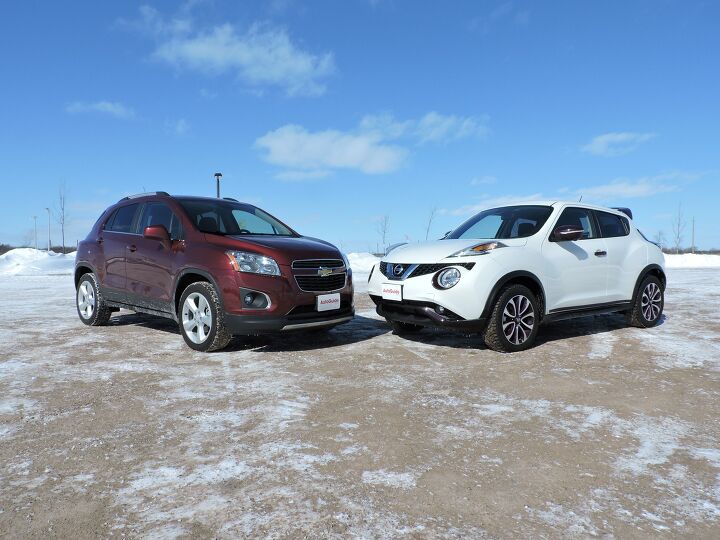
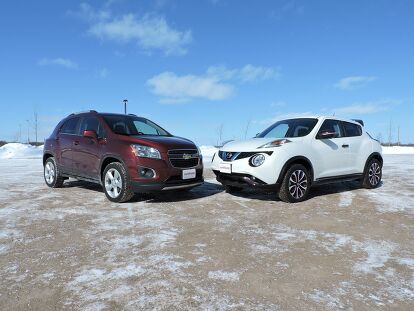














































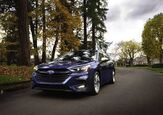







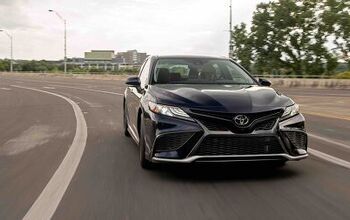
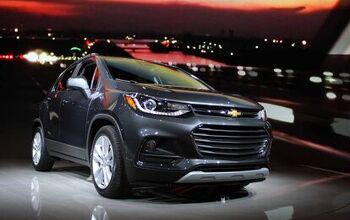
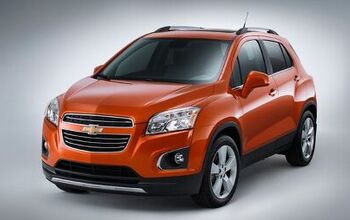
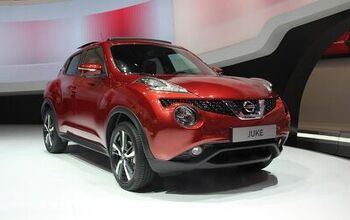

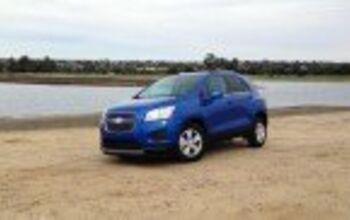




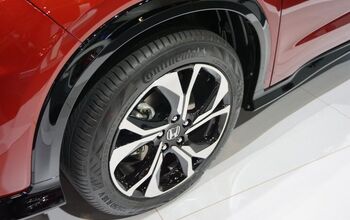
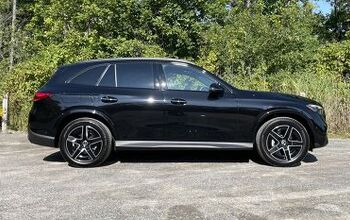




Comments
Join the conversation
ghgj
I've own a Chevrolet Trax for just over 3 months, I do a small delivery service for the elderly by bringing their medicines. My Trax has been dependable and reliable and with it awesome gas mileage, I can't complain. The little turbo is all that bad either. From owning a couple of Chevy Silverado's to now owning the Trax the ride is pretty good and smooth and can't complain since driving a lot in rural country roads. I have no regrets and can't wait to try out the 2017 model soon..